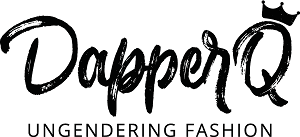Tuesday, October 8, 2019, the Supreme Court heard arguments on three historic cases that will determine LGBTQ+ workplace rights for decades. These cases will determine whether the language of Title VII of the Civil Rights Act of 1964 that forbids discrimination “on the basis of sex” also forbids discrimination on the basis of sexual orientation, gender presentation or trans identity. According to USA Today, “The three plaintiffs are Gerald Bostock, 55, a former child welfare services coordinator from Georgia; Donald Zarda, a former New York skydiving instructor who died at 44 in 2014 but is represented by his sister and former partner; and Aimee Stephens, 58, a former funeral home worker from Michigan who is transgender.” A decision is not expected until June of 2020.
Two weeks ago, I was asked to present to a group of financial corporations about dressing visibly queer in the workplace. I was asked to turn in my proposed slides for editing and approval, and soon after received a call from one of the firms representing the larger sponsor stating that they had concerns about my slides detailing fashion as being “political.” Of particular concern was the slide below:
The representative of the firm who was vetting content for the event sponsor felt that my slide was calling Trump “trash” (which, the slide is merely stating a fact) and might alienate some allies in the audience. I was immediately taken aback. For me, fashion is political, period. How can I talk about dressing visibily queer in the workplace if I could not talk about the actual laws that govern queer bodies in the workplace? For all people. There is no science that proves pearls are feminine and bow-ties are masculine. Fashion is a social construct and its political nature is THE reason that humans throughout history have used it as a means of social control (feet binding) to radical resistance and self affirmation (women being arrested for wearing pants). Queers have been at the forefront of dismantling gender binaries through beauty and fashion, which has led to greater emancipatory potential for all members of society.
Aside from LGBTQ+ rights being human rights, these cases will also impact our allies. For example, in the case of Aimee Stephens, one of her former employer’s many claims is that she will not be able to adhere to the companies “sex-based” dress code, stating, “There is no way that… [Ms. Stephens] would be able to present in such a way that it would not be obvious that it was [a man]” according to Vice. This turns back the clock on all workers, because this allows employers to continue to have archaic “sex-based” dress codes that could be enforced no matter your gender identity or presentation. This means that even a cis heterosexual woman could be fired for wearing pants if her employer enforces strict rules banning women from wearing pants and men from wearing skirts. Think it’s too far a conspiracy theory? Well, it’s happening already. Look at articles documenting claims that women are being fired for not wearing skirts, sent home for not wearing heels, and being pressured to wear makeup. Every day, we inch back to Handmaids Tale. (And I say back, because for many of us, that show is more a documentary of our history than a completely fictional dystopia).





